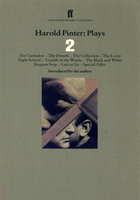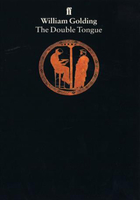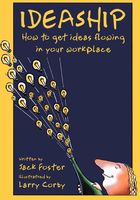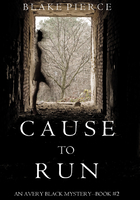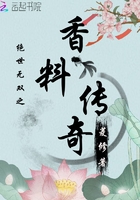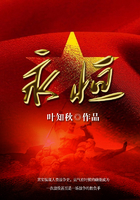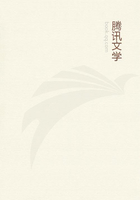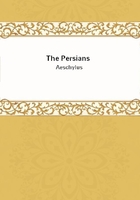As a student I had a passion for Jean Paul Sartre and I firmly believed in his thesis that the writer's commitment was to his own times and to the society in which he lived, that words were actions, and that through writing a man might influence history. Today such ideas seem na?ve and may even invite a yawn. We live in an age of smug skepticism about the power of literature as well as about history. But in the 1950s the notion that the world could be changed for the better and that literature should contribute to this effort struck many of us as both persuasive and exciting. By then Borges's[1] influence was beginning to be felt beyond the small circle of the magazine Sur[2] and his Argentine admirers. In a number of Latin American cities, among the literary set, ardent followers fought over the scarcer editions of his books as if they were treasures and learned by heart those visionary random lists or catalogs that dot Borges's pages, the particularly beautiful one from "El Aleph,"[3] for instance, and helped themselves not only to his labyrinths, tigers, mirrors, masks, and knives but also to his strikingly original use of adjectives and adverbs. In Lima, the first of these Borges enthusiasts I came across was a friend and contemporary of mine with whom I shared my books and my literary dreams. Borges was always an inexhaustible topic of discussion. In a clinically pure way he stood for everything Sartre had taught me to hate — the artist shrinking from the world around him to take refuge in a world of the intellect, erudition, and fantasy; the writer looking down on politics, history, and even reality and shamelessly displaying his skepticism and his wry disdain for whatever did not stem from books; the intellectual who not only allowed himself to treat ironically the dogmas and idealism of the Left but who took his own iconoclasm to the extreme of joining the conservative party and haughtily justifying this decision by claiming that gentlemen prefer lost causes.
In our discussions I tried to show with all the Sartrean malice I could command that an intellectual who wrote, spoke, and behaved the way Borges did, somehow shared responsibility for all the world's social ills, that his stories and poems were little more than bibelot d'inanité sonore (mere trinkets of high-sounding emptiness), and that history, with its terrible sense of justice, which progressives wield as it suits them, like the executioner's ax or the sharper's marked card or the conjurer's sleight of hand, would one day build him his just desserts. But once the arguments were over, in the discrete solitude of my room or the library, like the fanatical Puritan of Somerset Maugham's Rain who gives in to the temptation of the flesh he renounces, I found Borges's spell irresistible. And I would read his stories, poems, and essays in utter amazement. Moreover, the adulterous feeling I had that I was betraying my mentor, Sartre, only increased my perverse pleasure.
I had been somewhat fickle in the literary passions of my adolescence. Nowadays, when I reread many of the writers who were once my models, I find they no longer hold me, Sartre included. But the secret, sinful passion I harbored for Borges's work has never faded; and rereading him, which I have done from time to time like someone performing a ritual, has always been a happy experience. Only recently, in the preparation of this essay, I read all his books again one after another and once more marveled exactly as I had done the first time at the elegance and straightforwardness of his prose, the refinement of his stories, and the perfection of his craftsmanship. I am quite aware of how ephemeral literary assessments may prove, but in Borges's case I do not consider it rash to acclaim him as the most important thing to happen to imaginative writing in the Spanish language in modern times and as one of the most memorable artists of our age. I also believe that the debt we who write in Spanish owe to Borges is enormous. That includes even those of us, like myself, who have never written a story of pure fantasy or ever felt any particular affinity for ghosts or doppelg?ngers, the infinite, or the metaphysics of Schopenhauer.
A writer is not always conscious of the influences he has received. Because I write realistic novels and short stories, my work differs greatly from Borges's. But, again, I have been reading Borges ever since I discovered him and always with great admiration. This attention has left some kind of mark on what I have written, although I cannot say in what specific areas it is present. Many writers in Latin America have been greatly influenced by Borges. His influence on the prose of García Márquez[4] is well assimilated. In Julio Cortázar[5] the Borges influence is even greater because Borges's presence is obvious not only in the style but also in the system of transformation of daily reality into pure fantasy. This mechanism of transformation of real reality into imaginary reality is Borgesian. Borges also greatly influenced the Mexican Juan José Arreola,[6] a very good fantasy writer.
For the Latin American writer, Borges heralded the end of a kind of inferiority complex that inhibited us all unwittingly from broaching certain subjects and that kept us imprisoned in a provincial outlook. Before Borges it seemed a piece of fool-hardiness or self-delusion for one of us to pursue universal culture as a European or a North American might. A handful of Latin American modernist poets had previously done so, of course, but their attempts, even in the case of the most famous among them, Rubén Darío,[7] smacked of parody, or whimsicality, something akin to a superficial, slightly frivolous journey through a foreign land. Actually, the Latin American writer had forgotten what our classical writers, like the Inca Garcilaso[8] or Sor Juana Inés de la Cruz,[9] never held in doubt, the fact that by right of language and history he was part and parcel of Western culture, not a mere epigone or a colonial, but a legitimate part of that tradition ever since Spaniard and Portuguese, four and a half centuries earlier, had extended the frontiers of Western culture to the Southern Hemisphere.
With Borges this became true once more. At the same time it was proved that to participate in this culture took nothing away from the Latin American writer's sovereignty or his originality. Few European writers have assimilated the legacy of the West as completely and as thoroughly as did this Argentine poet and storyteller from the periphery. Who among Borges's contemporaries handled with equal ease Scandinavian myths, Anglo-Saxon poetry, German philosophy, Spain's Golden Age literature, the English poets, Dante, Homer, and the myths and legends of the Far and Middle East that Europe translated and gave to the world? But this did not make a European of Borges. I remember the surprise of my students at Queen Mary College in the University of London during the 1960s. We were reading Ficciones and "El Aleph" when I told them there were Latin Americans who accused Borges of being Europeanized, of being little more than an English writer. They could not see why. To them, this writer in whose stories so many different countries, ages, themes, and cultural references are intertwined, seemed as exotic as the cha-cha-cha, which was all the rage at that time. They were not wrong. Borges was not a writer in prison behind the heavy bars of national tradition, as European writers often are. And this freedom facilitated his journeys through cultural space, in which, thanks to the many languages he knew, he moved with consummate ease. This cosmopolitanism, this eagerness to be a master of so far-ranging a cultural sphere, this construction of a past upon a foundation both national and foreign was a way of being profoundly Argentine, which is to say Latin American.
But in Borges's case, his intense involvement with European literature was also a way of shaping his own personal geography, a way of being Borges. Through his broad interests and his private demons, he was weaving a fabric of great originality made up of strange combinations in which the prose of Stevenson and the Arabian Nights translated by Englishmen and Frenchmen rubbed shoulders with gauchos out of Martín Fierro[10] and characters from Islandic sagas, and in which two old-time hoodlums from a Buenos Aires more imagined than remembered fight with knives in a quarrel that seems the extension of a medieval dispute that results in a death by fire of two Christian theologians. Against the unique Borgesian backdrop, the most heterogeneous creatures and events parade, just as they do in the "Aleph," in Carlos Argentino Daneri's cellar. But in contrast with what takes place in that tiny pacific screen that can reveal the elements of the universe only at random, in Borges's work every element and every being is brought together, filtered through a single point of view, and given the verbal expression that lends it individual character.
Here is another area in which the Latin American writer owes much to the example of Borges. Not only did he prove to us that an Argentine could speak with authority on Shakespeare and create convincing stories with characters who came from Aberdeen but he also revolutionized the tradition of his literary language. Note that I said example and not influence. Borges's prose, because of his quiet originality, has wreaked havoc among countless admirers, in whose work the use of certain images or verbs or adjectives established by him turns into mere parody. This is the most readily detectable influence, for Borges was one of the writers who managed completely to put his own personal stamp on the Spanish language.
Word music was his favorite, and it is as distinctive in him as it is in the most illustrious of our classics, namely Quevedo,[11] whom Borges admired, and Góngora,[12] whom he did not. Borges's prose is so recognizable to the ear that often in someone else's work a single sentence, or even a simple verb, conjeturar (to conjecture), for example, or fatigar (to exhaust; to vex), used transitively, becomes a dead giveaway of Borges's influence. Borges made a profound impression on Spanish literary prose as before him Rubén Darío had on poetry. The difference between them is that Darío imported and introduced from France a number of mannerisms and themes that he adapted to his own work and to his own idiosyncratic style. In some way all this expressed the feelings and at times the snobbery of a whole period and a certain social milieu, which is why his devices could be used by so many without his followers losing their individual voices.
The Borges revolution was personal. It represented him alone and only in a vague, roundabout way was it connected to the setting in which he was formed and which in turn he helped crucially to form — that of the magazine Sur, which is why in anyone else's hands Borges's style comes across as a caricature. But this clearly does not diminish his importance or lessen in the slightest the enormous pleasure his prose gives. It can be savored word by word like a delicacy. The revolutionary thing about Borges's prose is that it contains almost as many ideas as words, for his precision and concision are absolutes. While this skill is not uncommon in English or French literature, in Hispanic literature it has few precedents. Marta Pizarro, a character in Borges's story "The Duel," reads Lugones[13] and Ortega y Gasset[14] and this confirms her suspicion that the language to which she had been born was less fit for expressing the mind or the passions than for verbal showing off. Joking aside, if we omit what she says about the passions, there is some truth to her remark.
Like Italian or Portuguese or Catalan, Spanish is a wordy language, bountiful and flamboyant, with a formidable emotional range. But for these same reasons, it is conceptually inexact. The work of our greatest prose writers, beginning with Cervantes, is like a splendid display of fireworks in which every idea marches past, preceded and surrounded by a sumptuous court of servants, suitors, and pages, whose function is purely decorative. In our prose, color, temperature, and music are as important as ideas and, in some cases — Lezama Lima[15] or Valle Inclán,[16] for example — more so. There is nothing objectionable about these typically Spanish rhetorical excesses. They express the profound nature of a people, a way of being in which the emotional and the concrete prevail over the intellectual and the abstract. This is why Valle Inclán, Alfonso Reyes,[17] Alejo Carpentier,[18] and Camilo José Cela,[19] to cite four magnificent prose writers, are so verbose in their writing. This does not make their prose either less skillful or more superficial than that of Valéry or T. S. Eliot. They are simply quite different, just as Latin Americans are different from the English and the French. To us, ideas are formulated and captured more effectively when fleshed out with emotion and sensation or in some way incorporated into concrete reality, into life — far more than they are in logical discourse. That perhaps is why we have such a rich literature and such a dearth of philosophers.
When Latin American thinkers set out to write philosophy, they usually write literature. This is true of the most illustrious thinker in the Spanish language in modern times, Ortega y Gasset, who is, above all, a literary figure. Philosophy comes to us through literature because it is difficult for a person of our culture to separate ideas from all the rest — flesh, color, sensation. Borges was a rare exception in considering ideas so important that all the rest was eliminated, relegated to a second level. The genius of the Spanish writer has always flourished through excessive rhetoric, which expresses a fundamental element in our nature and in our culture. If you think of our great writers, all of them are great rhetoricians. Think of Pablo Neruda, for instance, a great poet. It is the exuberance, the excess. Creation is something that appears like a natural phenomenon, a kind of transpiration of nature more than an intellectual exercise.
Again, within this tradition, Borges's prose is an anomaly, for in opting for the strictest frugality he deeply disobeys the Spanish language's natural tendency toward excess. To say that with Borges, Spanish became intelligent may appear offensive to other writers of the language, but it is not. What I am trying to say in the wordiness I have just described is that in Borges there is always a logical, conceptual level to which all else is subservient. His is a world of clear, pure, and at the same time unusual ideas that, while never relegated to a lower plane, are expressed in words of great directness and restraint. "There is no more elaborate pleasure than that of thought and we surrendered ourselves to it," says the narrator of "The Immortal," in words that give us a perfect picture of Borges. This story is an allegory of his fictitious world; in it the intellectual always devours and destroys the mere physical. In forging a style of this kind, which so genuinely reflected his tastes and background, Borges made a radical innovation in the stylistic tradition of Spanish. By purifying it, by intellectualizing and coloring it in such a personal way, he showed that the language, about which, like his character Marta Pizarro, he was often so severe, was potentially much richer and more flexible than tradition seemed to indicate. Provided that a writer of Borges's caliber attempted it, Spanish was capable of becoming as lucid and logical as French and as straightforward and full of nuances as English. There is no other work in our language like Borges's to teach us that with regard to literary Spanish there is always more to be done and that nothing is final and permanent.
The most intellectual and abstract of our writers was at the same time a superb storyteller. One reads most of Borges's tales with hypnotic interest usually reserved for reading detective fiction, a genre he was to cultivate while injecting it with metaphysics. But his attitude toward the novel was one of scorn. Predictably, its realistic tendencies troubled him because, with the exception of Henry James and a few other illustrious practitioners, the novel is a genre that resists being bound to what is purely speculative and artistic and so is condemned to melt into the sum total of human experience, ideas and instincts, the individual and society, reality and fantasy. The novel's congenital imperfection and dependence on human clay Borges found intolerable. This is why in 1941 he wrote in the foreword to The Garden of Forking Paths that "The habit of writing long books, of extending to five hundred pages an idea that can be perfectly stated in a few months' time, is a laborious and exhausting extravagance." The remark takes for granted that every book is an intellectual discourse, the expounding of a thesis. If that were true, the details of any work of fiction would be little more than superfluous garments on a handful of concepts, which could be isolated and instructed like the pearl that nests in the shell. Can Don Quixote, Moby Dick, the Charter House of Parma, The Devils, be reduced to one or two ideas? Borges's statement is not useful as a definition of the novel, but it does reveal to us eloquently that the central concern of his fiction is conjecture, speculation, theory.
There is also an intellectual distance about reality in Cervantes that is very Borgesian. But in Cervantes, along with ideas there is always flesh, living experience reproduced, reinvented. Not in Borges. The literary world of Borges is much more abstract and intellectual than in Cervantes. That is why Borges despised the novel as a genre; because it is impossible to dissociate the novel from living experience, by which I mean human imperfection. In a novel you cannot be only perfect; you must also be imperfect. The imperfection that is essential in a novel was for Borges inartistic and, therefore, unacceptable. That is why he so often wrote against the novel and always depicted it as a minor literary genre.
Owing to its brevity and compression, the short story was the genre most suited to those subjects that prompted Borges to write. Thanks to his mastery of the craft, time, identity, dreams, games, the nature of reality, the double, and eternity — all lost their vagueness and obstruction and took on charm and drama. These preoccupations appear ready-made as stories, usually starting cleverly with quite realistic, precise details and footnotes, often concerned with local color so that at some point imperceptibly or even brusquely he can steer them toward the fantastic or make them vanish in philosophical or theological speculation. Never important or thoroughly original in these tales are the facts, but the theories that explain them and the interpretations that they give rise to always are. For Borges, as for his ghostly character in "Utopia of a Tired Man," facts are mere points of departure for invention and reasoning. Reality and fantasy are fused through the style and through the ease with which the narrator moves from one to the other, more often than not displaying devastatingly sardonic erudition and an underlying skepticism that keeps in check any undue indulgence.
I saw Borges very few times. The first time was in Paris, when I was a journalist. I went to interview him and was so impressed I could not speak. I remember one of the questions I asked him was "What do you think of politics?" He gave me an answer I have always remembered. He told me it was una de las formas del tedio (one of the forms of tedium). Initially, he was a very courteous, very shy man; but his personality changed when he became a celebrity. He adopted a public personality, very different from what he was before. He always repeated the same jokes. He made provocative remarks to épater le bourgeois (to shock the old fogeys).[20] But in spite of his remarks that sometimes seemed arrogant, he was one of the really modest writers I have met — modest about his achievements as a writer and about his genius. He did not believe that he was a genius. Until his fifties, he was an unknown man in his country. It was only when France and the rest of the world discovered him that he became a celebrity in Argentina and the rest of Latin America and that his life changed completely.
In a writer as sensitive as Borges, and in a man as courteous and frail as he was, especially because his growing blindness made him little more than an invalid, the amount of blood and violence to be found in his stories is astonishing. But it should not be. Writing is a compensatory activity, and literature abounds in cases like his. Borges's pages teem with knives, crimes, and scenes of torture, but the cruelty is kept at a distance by his fine sense of irony and by the cool rationalism of his prose, which never falls into sensationalism or the purely emotional. This lends a statuesque quality to the physical horror, giving it the nature of a work of art set in an unreal world.
Borges was always fascinated by the mythology and the stereotype of the hoodlum of the outer slums of Buenos Aires and the knife fighter of rural Argentina. These hard-bitten men, with their sheer physicality, animal innocence, and unbridled instincts, were his exact opposites. Yet, he peopled a number of his stories with them, bestowing on them a certain Borgesian dignity, that is to say an aesthetic and intellectual quality. It is obvious that these thugs, knife fighters, and cruel murderers of his invention are as literary and real as his characters of pure fantasy. The former may wear ponchos or speak in a way that apes the language of old-time hoodlums or gauchos from the interior. But none of this makes them any more realistic than the heresiarchs, magicians, immortals, and scholars who inhabit his stories, either today or in the remote past from every corner of the globe. All had their origins, not in life, but in literature. All are first and foremost ideas magically made flesh thanks to the expert spinning of words by a great literary conjurer.
Each one of Borges's stories is an artistic jewel; and some, like "Tlon, Uqbar, Orbis Tertius," "The Circular Ruins," "The Theologians," and "El Aleph," are masterpieces of the genre. The unexpectedness and subtlety of his themes are matched by an unerring sense of structure. Obsessively economical, Borges never admits a word or scrap of information that is superfluous, although to tax the reader's ingenuity, details are sometimes left out. This economy of words might remind some of Hemingway, who was a sober writer, an austere writer. But the differences between him and Borges are enormous. Hemingway was not an intellectual. He seemed to despise intellectuals. His world is a world of facts, actions, living beings, things that are much more important than ideas. He was a realistic writer, something that Borges was not. The symbol of a setting for a Hemingway story is a boxing ring; for Borges, a library. On the other hand I think Nabokov was a writer quite close to Borges. He had the same rich literary culture, moved with great ease in different languages and traditions, and had a playful approach to literature — literature as an intellectual game, through which, of course, the real truths could appear. But apparently the game was for Nabokov just an exercise devoid of moral substance.
The exotic is an indispensable element in Borges's stories. Events take place far removed in space and time and, this distancing gives them an added allure. Or else they occur in the legendary outer slums of old-time Buenos Aires. In a remark about one of his characters, Borges says: "The fellow was a Turk; I made him into an Italian so that I could more easily fathom him." In fact, Borges usually did the opposite. The more removed in time or space his characters were from him or his readers, the better he could manipulate them, attributing to them those marvelous qualities with which they are endowed or making their often improbable experiences more convincing.
But this is not to say that Borges's exoticism and local color have a kinship with the exoticism and local color of regionalist writers like Ricardo Güiraldes and Ciro Alegría. In their work, the exoticism is spontaneous and stems from a narrowly provincial, localized vision of the countryside and its customs that the regionalist writer identifies with the world. In Borges the exoticism is a pretext. He uses it with the approval or the ignorance of the reader to slip rapidly, imperceptibly out of the real world and into that state of unreality which, in common with the hero of "The Secret Miracle," Borges believes is the prerequisite of art.
An inseparable complement to the exoticism in his stories is the erudition, the bits of specialized knowledge, usually literary, but also philological, historical, philosophical, or theological. This knowledge, which borders on but never oversteps the bounds of pedantry, is quite freely flaunted. But the point of it is not to show off Borges's wide acquaintance with different cultures. Rather, it is a key element in his creative strategy, the aim of which was to imbue his stories with a certain colorfulness, to endow them with an atmosphere all their own. In other words Borges's learning by his use of exotic settings and characters fulfills an exclusively literary function, which, in twisting the erudition around and making it sometimes decorative, sometimes symbolic, subordinates it to the task at hand. In this way Borges's theology, philosophy, linguistics, and so forth, lose their original character, take on the quality of fiction, and, becoming part and parcel of a literary fantasy, are turned into literature.
"I am rotten with literature," Borges once confessed in an interview. So was his fictional world. It is one of the most literary worlds any author ever created. In it, the worlds, characters, and myths forged down through the years by other writers flock in and out, over and over, and so vividly that they somehow encroach on the objective world that is the usual context of any literary work. The reference point in Borges's fiction is literature itself. "Little has happened to me in my lifetime, but I have read much," Borges wrote teasingly in his afterword to "Dream Tigers." "Or rather, little has happened more memorable than the philosophy of Schopenhauer or the word music of England." This should not be taken too literally, for any man's life, however uneventful, conceals more riches and mystery than the most profound poem or the most complex mental process. But the remark reveals a subtle truth about the nature of Borges's art, which, more than that of any other modern writer, comes of metabolizing world literature and putting an individual stamp on it.
His brief narratives are full of resonances and clues that stretch away to the four cardinal points of literary geography. It is to this no doubt that we owe the zeal of practitioners of heuristic literary criticism who are tireless in their attempts to track down and identify Borges's endless sources. Arduous work it is, too, make no mistake, and what is more it is pointless, for what lends greatness and originality to Borges's stories is not the materials he uses but what he turns those materials into. A small, imaginary world populated by tigers and highly educated readers, full of violence and strange sects, acts of cowardice and uncompromising heroism in which language and imagination replace objective reality and the intellectual task of reasoning out fantasies outshines every other form of human activity.
It is a world of fantasy, but only in the sense that it contains supernatural beings and abnormal events, not in the sense that it is an irresponsible world, a game divorced from history and even from mankind. There is much that is playful in Borges, and on the fundamental questions of life and death, human destiny, and the hereafter, he expresses more doubt than certainty. But his is not a world separated from life or from everyday experience or without roots in society. Borges's world is as grounded in the changing nature of existence, that common predicament of the human species, as any literary world that has lasted. How could it be otherwise? No work of fiction that turns its back on life or that is incapable of illuminating life has ever attained durability. What is singular about Borges is that in his world the existential, the historical, sex, psychology, feelings, instincts, and so forth, have been dissolved and reduced to an exclusively intellectual dimension; and life, that boiling, chaotic turmoil, reaches the reader sublimated and conceptualized, transformed into literary myth through the filter of Borges, a filter of such perfect logic that it sometimes appears not to distill life to its essence but to suppress it altogether.
Poetry, short story, and essay are all complementary in Borges's world; and often it is difficult to tell into which genre a particular text of his fits. Some of his poems tell stories, and many of his short stories — the very brief ones especially — have the compactness and delicate structure of prose poems. But it is mostly in the essay and short story that elements are switched so that the distinction between the two is blurred, and they fuse into a single entity. Something similar happens in Nabokov's novel Pale Fire, a work of fiction that has all the appearance of a critical edition of a poem. The critics hailed the book as a great achievement and, of course, it is. But the truth is that Borges had been after the same sort of tricks for years and with equal skill. Some of his more elaborate stories, like "The Approach to Al-Mu'tasim," "Pierre Menard, Author of Don Quixote," and "An Examination of the Work of Herbert Quain," pretend to be book reviews or critical articles. In the majority of his stories, invention, the forging of a make-believe reality, follows a tortuous path, cloaking details in historical re-creation or in philosophical or theological inquiry. Because Borges always knows what he is saying, the intellectual groundwork for this sleight of hand is solid.
But exactly what is fictitious in his stories remains ambiguous. Lies masquerade as truths and vice versa. This ambiguity is typical of Borges's world. The opposite may be said of many of his essays, such as "History of Eternity," or the little pieces in The Book of Imaginary Beings. In them, among the scraps of basic knowledge upon which they rest, another element of fantasy and unreality of pure invention filters through like a magic substance and turns them into fiction.
No literary work, however rich and accomplished it may be, is without its darker side. In the case of Borges, his world sometimes suffers from a certain cultural ethnocentricity. The black, the Indian, the primitive often appear in his stories as inferiors, wallowing in a state of barbarism apparently unconnected either to the accidents of history or to society, but inherent in the race or status. They represent a lower humanity, shut off from what Borges considers the greatest of all human qualities, intellect and literary refinement. None of this is explicitly stated and doubtlessly it was not even conscious; rather, it shows through in the slant of a certain sentence or may be deduced from observation of a particular mode of behavior. For Borges, as for T. S. Eliot, Giovanni Papini,[21] and Pío Baroja,[22] civilization could only be Western, urban, and almost white. This civilization survives as it has come down to us, not directly, but through the filter of European translations of Chinese, Persian, Japanese, or Arabic original works. Those other cultures that form part of Latin America, the native Indian and the African, feature in Borges's world more as a contrast than as different varieties of mankind. Perhaps this is because they were a meager presence in the milieu in which he lived most of his life. I also have had great difficulty writing about Indian characters in my own novels because I am a realistic writer in the sense that I write out of personal experiences. My personal experience of the Indian world is limited because, for one thing, I do not speak the Indian languages. I remember in writing The Greenhouse, I wanted to have an Indian character, a primitive man from a small tribe in the Amazon region, as the central figure in the novel. I tried hard to invent this character from within in order to show the reader his subjectivity, how he had assimilated some kind of experiences with the white world. But I could not do it. It was totally impossible for me to invent a persuasive description of a man who was so far away from me from a cultural point of view, a man who had, not a rational, but a magical relationship with the world. I felt I was making a caricature of this character and finally decided to describe him through intermediaries, through characters whom I was able to divine and to perceive.
Borges's ethnocentric limitation does not detract from his many other admirable qualities, but it is best not to sidestep it when giving a comprehensive appraisal of his work. Certainly, it is a limitation that offers further proof of his humanity because, as has been said over and over again, there is no such thing as absolute perfection in this world, not even in the world of a creative artist like Borges, who comes as close as anyone to achieving it.
I would like to thank Professor David Robinson for his editorial assistance with this essay and several others.
Notes
[1] Jorge Luis Borges (1899–1986). Borges was an excellent avant-garde poet in the 1920s and 1930s. But his worldwide reputation rests on his short stories, which he began publishing only in the mid-1930s. Among the most important volumes of stories are The Universal History of Infamy (1935), Garden of the Forking Paths (1941), Fictions (1935–1944), The Aleph and Other Stories (1949), and Dr. Brodie's Report (1970).
[2] Sur. Influential liberal Argentine literary magazine of universal scope founded in 1931 by Victoria Ocampo and directed by her until her death in 1979. Borges was a member of the first editorial board of Sur. Distinguished Latin American literary figures — Borges, Eduardo Mallea, Alfonso Reyes, Vicente Huidobro, Gabriela Mistral and Octavio Paz — all contributed to Sur, as well as foreign authors in translation, such as Faulkner, Huxley, Saroyan, Steinbeck, Camus, Gide, Sartre, and Valéry.
[3] "El Aleph." One of Borges' most famous stories, in which the protagonist, the pedant Carlos Argentino Daneri, on the nineteenth step in his cellar, comes upon the Aleph, a point in space that is supposed to hold all possible points.
[4] Gabriel García Márquez (1928–). The great Colombian writer, Nobel Laureate 1982, is the author of One Hundred Years of Solitude (1967), Love in the Time of Cholera (1988), and El general en su laberinto (The Labyrinth of the General) (1989).
[5] Julio Cortázar (1914–1984). Great Argentine fiction writer and political essayist. Among his writings are Bestiario (1951), End of the Game (1956), Stories of Cronopios and Famas (1962), All Fires the Fire and Other Stories (1966), and his masterpiece, the novel Hopscotch (1963), the story of an angry and confused Argentine expatriate.
[6] Juan José Arreola (b. 1918). Mexican short story writer who uses fantasy and magic realism to satirize contemporary society. His stories are collected in Confabulario and Other Inventions (1952).
[7] Rubén Darío (1867–1916). The great Nicaraguan poet whose Blue (1888) and Profane Prose (1896) are central works in the modernist movement that revolutionized Latin American poetry.
[8] El Inca Garcilaso de la Vega (1539–1616). Born of a Spanish father and an Inca princess, he was the first mestizo writer in Latin America. Author of Royal Commentaries of the Incas (1609) and General History of Peru (1617).
[9] Sor Juana Inés de la Cruz (1651–1695). The greatest Latin American poet of the colonial period, frequently called "The Tenth Mexican Muse." Her poetry is one of the finest examples of the baroque in Latin America. She is also the author of many dramatic works and prose writings that reveal an independence of thought rarely exhibited in literature by a woman of the seventeenth century in Mexico.
[10] Martín Fierro. Classic Argentine epic poem (1872) of the persecuted gaucho, by José Hernández (1834–1886).
[11] Francisco de Quevedo (1580–1645). One of the great writers of the Golden Age in Spanish literature. Author of The Life of a Sharper (1626), a picaresque novel, and Visions (1627), grotesque pictures of hell and Judgment Day. Quevedo is one of the most acerb satirists in Spanish literature.
[12] Luis de Góngora (1561–1627). Spanish poet of great renown, author of beautiful lyrical and narrative poems and also of obscure verses, such as Solitudes (1613), written in artificial and contrived language.
[13] Leopoldo Lugones (1874–1938). Most important Argentine poet of the modernist movement. Extremely influential in literary and intellectual circles throughout Latin America. Among his volumes of poetry are The Golden Mountains (1897), The Twilights of the Garden (1905), and Secular Odes (1910).
[14] José Ortega y Gasset (1883–1955), Spain's preeminent philosopher and essayist, author of The Spectator (1916–1925), Invertebrate Spain (1923), The Dehumanization of Art (1925) and The Revolt of the Masses (1930).
[15] José Lezama Lima (1910–1976). Cuban poet and novelist, editor of the literary magazine Orígenes (1945–1950). His most important novel is a complex, baroque work titled Paradiso (1966).
[16] José María del Valle Inclán (1870–1936). Spanish novelist of exquisite, ultrarefined aesthetic sensibility. Among his works are the four Sonatas (1902–1905), whose protagonist is the Marqués de Bradomín in four stages of his life.
[17] Alfonso Reyes (1889–1959). Great Mexican literary critic, humanist, poet, and diplomat. His essays include Vision of Anahuac (1917), Sympathies and Differences (1921–1926), and The Position of America (1950).
[18] Alejo Carpentier (1904–1980). One of Cuba's outstanding novelists, whose most important works are The Kingdom of This World (1949), Lost Steps (1953), Manhunt (1956), and The Century of Lights (1962). He also published a volume of short stories, The War of Time (1958).
[19] Camilo José Cela (b. 1916). Spanish novelist; Nobel Prize in Literature, 1989. His early novels, The Family of Pascual Duarte (1942) and The Hive (1951) are among his best and most enduring.
[20] I think the reason Borges never received the Nobel Prize is because of his political statements, because he made rightest statements when it was unacceptable to be a rightest, to "épater le bourgeois." In fact, I do not think he was a rightest. He was a very courageous man; for instance, during the Peronist regime. He despised politics, but he opposed Peronism with great clarity and courage.
[21] Giovanni Papini (1881–1956). Italian writer and critic, author of The Life of Christ (1923), Memoirs of God (1926), and Life and Myself (1930).
[22] Pío Baroja (1879–1956). One of Spain's foremost and most prolific novelists of the Generation of '98. Rebellious and iconoclastic, he is the author of over sixty novels, among them Paradox, King (1906), The Restlessness of Shanti Andía (1911), and The Tree of Knowledge (1911).

